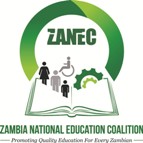
1.0 BACKGROUND
The Zambia National Education Coalition (ZANEC)’s core mandate is to conduct evidence-based advocacy for quality education for all Zambians. Thus, the organization has a niche for conducting research, analysis, monitoring and influencing. In addition, ZANEC is known for mobilising Civil Society Organisations and communities through its Member Organisations located in various parts of the country, giving the Coalition its national character.
ZANEC, with support from Norwegian Student’s and Academics’ International Assistance Fund (SAIH) is working to advocate for access and quality service delivery in Institutions of Higher Learning. ZANEC’s vision is that everyone should have access to inclusive and good education. Implementation of this vision needs different stakeholders, including governments, international agencies, non-governmental organizations; unions and students movements.
2.0 RATIONALE OF THE STUDY
ZANEC seeks to commission a study to review access to the Loans and Scholarship scheme in Institutions of Higher Learning. Financial exclusion from education is an issue in Zambia, with direct and associated education costs prohibiting individuals from accessing education. As such, the Higher Education Loans and Scholarships Act, 2016 tries to address this challenge by providing the grants, administration, investment, payment and recovery of loans; provide for the administration and granting of scholarships; facilitate the mobilization of financial resources for loans and scholarships. The Loans and Scholarship Scheme allows for the equitable and equal access of higher education through providing financing to qualifying Zambians.
Currently the access to this fund has not been able to provide the envisioned levels of access in terms of financing to higher institutions of learning under the Scheme as several applicants have been left out. A case in point is the Copperbelt University where we saw students demonstrating due to their colleagues not being offered scholarships/Loans for the academic year 2019. This has been acerbated by the reduced expenditure to the Education and Skills Sector National Budget where the approved total National Budget has on average grown by 17% since 2015, the total education budget has grown by an average of 9% in nominal terms over the same period. Worse still, when expressed as a percentage of the national budget, the share of the National Education and Skills Sector Budget has experienced a steady decline from 2015 to date. Currently the Loans and Scholarship Scheme allocation under the Ministry of Higher Education budget for 2019was 1.3 % of the sector budget.
ZANEC recognizes the pressure that such budgetary allocations have on the provision of higher education to every Zambian It is for this reason that ZANEC wished to commission an assessment of the Loans and Scholarship Scheme. It is expected that the study will look into the financing trends, accessibility and quantify it by the number of beneficiaries by gender and academic cause since its inception. It is envisioned that the assessment will increase the coalition body of knowledge for the purposes of continued advocacy for increased access.
2.1Objective
- To generate evidence to advocate for increased financial support to Higher Education with the view to ensuring increased and equitable access to Loans and Scholarships to those who are disadvantaged, marginalized and or at risk of missing out.
- Specific Objectives:
- To conduct a trend analysis of the Education and Skills Sector budgetary allocations that are meant for the purposes of financing the Loans and Scholarship Board.
- To conduct an analysis of the application and rewarding process.
- To investigate the best form of financing that will be beneficial and impactful to the provision of financing to higher education.
- To assess the recipients of the Loans and Scholarship Scheme to determine:
- Equity in allocation of recipients – gender break and career preference for scholarships.
- Adequacy versus number of applicants.
- c) Prudence in the management of the Loans and Scholarship fund.
- d) Analysis of the Skills fund and how it contributes to the provision of Loans
and Scholarship Scheme.
- e) Analysis of academic pathways financed through the scheme.
3.0 SCOPE OF WORK
The consultant is expected to gather information to provide the following:
- Conduct an assessment of allocations and releases to the Loans and Scholarship Board from 2010 – 2018.
- The scope of work should follow a transparent and inclusive process of consultation of the diverse groups that make up the Education and Skills Sector.
- Present a complete accepted report and power point summary of the findings for presentation at a stakeholders’ meeting convened specifically for this purpose by the ZANEC Secretariat.
4.0 DELIVERABLES AND DURATION OF CONSULTANCY
The assignment is expected to be completed within 8 working days and timeframes are to be jointly agreed between ZANEC Secretariat and the consultant, with the following deliverables.
- Inception report with proposed data collection methodologies and proposed time frames for deliverables.
- First and second draft of the research report for review.
- Present the second draft assessment report at a stakeholders’ meeting.
5.0 REQUIRED COMPETENCIES
- Must have at least a Master’s Degree in Education or related field.
- Proven experience and track record in policy analysis.
- Strong communication skills both oral and written English.
- Ability to devote full time to the assignment and meet deadlines.
PLEASE SUBMIT YOUR APPLICATIONS BY THE 30TH OF AUGUST 2019 TO:
The Executive Director
Zambia National Education Coalition (ZANEC)
Baptist Fellowship Building
Conner of Makishi and Great East Road,
Plot 3061/2
Lusaka, Zambia
Telephone number +26011226422
Or e-mail: admin@zanec.org.zm
Find Us on Social Media
